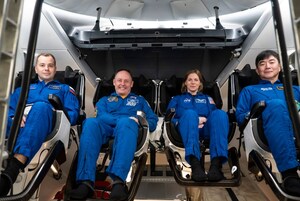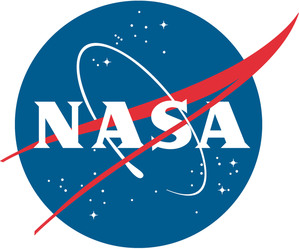
WASHINGTON, June 4, 2015 /PRNewswire-USNewswire/ -- NASA is awarding a total of approximately $11.25 million to universities in 15 states to conduct basic research and technology development in areas critical to the agency's mission.
NASA's Experimental Program to Stimulate Competitive Research (EPSCoR) program is awarding up to $750,000 to colleges and universities for research and development in areas, such as remote sensing, nanotechnology, astrophysics and aeronautics, all of which are applicable to NASA's work in Earth science, aeronautics, and human and robotic deep space exploration.
The award covers a three-year period. Results from the research will be provided to NASA for possible inclusion in its programs.
The awardees and the title of their winning proposals are:
- University of Alaska, Fairbanks: A Vertical Comet Assay for Measuring DNA Damage to Radiation
- University of Arkansas, Fayetteville: Arkansas NASA EPSCoR - SiGeSn Based Photovoltaic Devices for Space Applications
- University of Hawaii, Hilo: Developing a Capability at the University of Hawaii for Multiple UAV Observations of Active Volcanism
- Wichita State University, Wichita, Kansas: Active Wing Shaping Control for Morphing Aircraft
- Louisiana State University, Baton Rouge: Investigating Terrestrial Gamma Flash Production from Energetic Particle Acceleration in Lightning using TETRA-II
- Missouri University of Science & Technology, Rolla: Learning Algorithms for Preserving Safe Flight Envelope under Adverse Aircraft Conditions
- University of Mississippi, Oxford: GEANT4 Simulations for Astronaut Risk Calculations
- University of North Dakota, Grand Forks: Multi-Purpose Research Station in North Dakota in Support of NASA´s Future Human Missions to Mars
- University of Nebraska, Lincoln: Large Volume Crystal Growth of Superoxide Dismutase Complexes in Microgravity for Neutron Diffraction Studies
- University of New Hampshire, Durham: Responsive Autonomous Rovers to Enable Polar Science
- New Mexico State University, Las Cruces: Virtual Telescope for X-ray Observations
- University of Nevada, Reno: Advanced Transport Technologies for NASA Thermal Management/Control Systems
- University of Oklahoma, Norman: Extracting the Photonic Spectrum for the Long Range Exploration of Space: A Hybrid Photovoltaic Photon Upconversion and Biological System for Energy Production and Life Support
- College of Charleston, in partnership with the University of the U.S. Virgin Islands, Charleston, South Carolina: Using NASA's Ocean Color Sensors to Identify Effects of Watershed Development and Climate Change on Coastal Marine Ecosystems of the US Virgin Islands
- South Dakota School of Mines & Technology, Rapid City: Development of Direct-Write Materials, and Electronic and Electromagnetic Devices for NASA Printable Spacecraft
EPSCoR is managed by NASA's Office of Education in Washington, and in each participating jurisdiction by a program director who oversees the process of submitting grant proposals and the work performed with the grant funding.
In addition to funding research that can further NASA's current and future mission, these grants provide the added benefit of improving science and technology research and development capabilities at recipient universities.
To learn more about EPSCoR and to view an abstract from each of the 2015 EPSCoR education research selectees, visit:
For more information about NASA's education programs, visit:
Logo - http://photos.prnewswire.com/prnh/20081007/38461LOGO
SOURCE NASA







Share this article